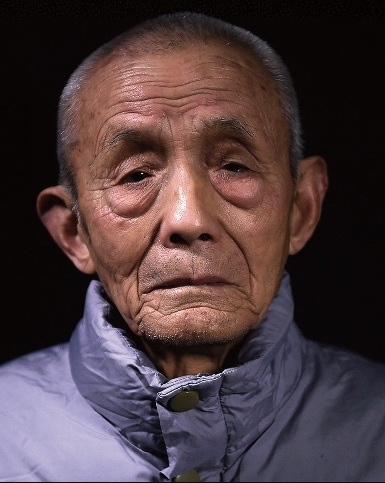Outrage grows over Nanjing selfies


Survivors of the Nanjing Massacre and historians are calling for legislation to sanction people like the two men who posed for photos dressed in imperial Japanese military uniforms in front of a Nanjing memorial site. The two were detained last week.
"A mere 15-day detention is not a serious enough penalty for them," Wang Yilong, a survivor of the massacre in the winter of 1937-38, told thepaper.cn.
The 95-year-old saw the newspaper photos and was angry that the two adults couldn't bring themselves to respect the victims of the massacre - in which hundreds of thousands of people were raped and murdered - and the bloody history of the War of Resistance Against Japanese Aggression (1931-45).
"They did not realize that such behavior is completely wrong, which may be partly caused by a lack of history education in their families or schools," Wang said. "I would prosecute the two as a warning to others who still dare to do so."
Chen Deshou, an 87-year-old survivor, said he would also like to participate in litigation.
"My family members were killed in the massacre," Chen said. "It is really necessary to give a harsher punishment to people like those two men, rather than merely giving them a few days of detention."
The photos went viral on Feb 21 after internet user Shangdizhiying_5zn, which means "God's eagle", posted them on Sina Weibo.
The photos show the two men in front of the Shaojiashan bunkers on Zijin Mountain - where many Chinese lost their lives fighting Japanese soldiers in 1937. They were holding a rifle and saber, and wearing caps and uniforms like those worn by Japanese troops during the war.
The Jiangsu police detained the two men on Thursday. One man, surnamed Zong, 22, was picked up in Jurong, Jiangsu province. The other, surnamed Tang, 25, was detained in Dazhou, Sichuan province.
Zong and Tang have been severely criticized online.
Both survivors and relatives of victims of the Nanjing Massacre expressed a desire to prosecute the two, even though the court may not accept the lawsuit because there was no substantive damage, according to legal experts.
To deal with the issue, an organization founded by the Nanjing Lawyers Association and Nanjing Legal Aid Foundation, which specializes in protecting historical truths about the massacre, has begun to research possible laws, according to Ren Tanzhen, the group's president.
Wu Xianbin, curator of the Nanjing Folk Anti-Japanese War Museum, said he is willing to institute public interest litigation in the name of the museum.
"This could serve as a warning to those two people and arouse social indignation," Wu said. "It is necessary to promote legislation at the national level concerning fascist speech and conduct, as there is no specific law in this field in China.
"Any parties engaging in fascist speech or behavior must bear legal responsibility. For example, authentic-looking Japanese army uniforms are free to be produced and sold in China, but that could be prohibited by law or regulation in the future."
Wu suggested that Nanjing, the place where the massacre occurred, could be the first to introduce legislation on the issue, since it would be a long process to establish a law at the national level.
It is not the first time such behavior has occurred. In August last year, five people were held in administrative detention and given warnings by the Shanghai police after posing for photos dressed in Imperial Japanese Army uniforms in front of the historic Sihang Warehouse in Shanghai, which was used to repel the invaders in 1937.
In July, the State Administration of Cultural Heritage began soliciting public opinion on a document regarding the preservation and use of cultural relics relevant to the war, saying that all visitors to such sites should dress properly and remain silent to show respect.
Ling Xi, vice-curator of the Memorial Hall of the Victims of the Nanjing Massacre by Japanese Invaders, said one must not make jokes related to painful historical events that touch the "bottom line of human nature".
Apart from legislation, Ling highlighted the significance of proper education of young people about history.
"We should strongly support the establishment of historical monuments and museums, and seriously supervise historical films and television works, in a bid to help - especially young people - understand and evaluate history correctly," she said.
- SCIA elevates global reach with launch of new English website
- Legacy of Tea Horse Road lives on in Yunnan village
- Brewing rich legacy of tea culture
- China's unfolding story of innovation, unity and influence
- Investment in water projects bears fruit
- China, Russia vow to foster cooperation, deepen ties





































